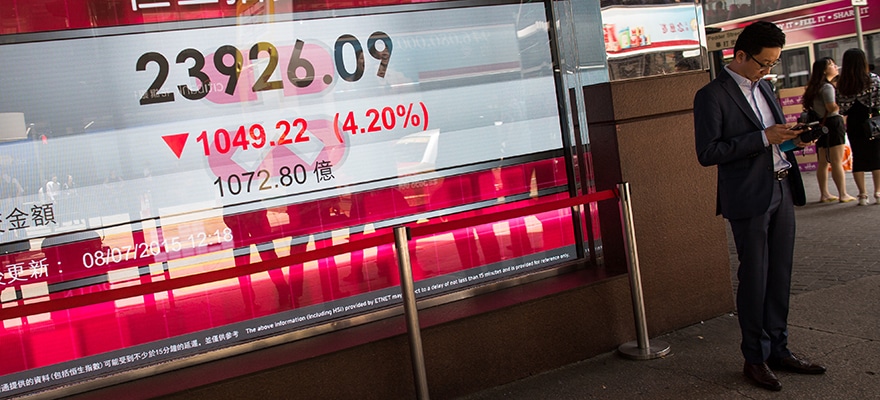As global traders and investors are on the edge over the Greek saga threatening to disrupt European markets, another crisis is already erupting. Stock markets across Asia are weighed down today by the apparent failure of the Chinese government to stop the bubble in the world's second largest economy from bursting.
The Shanghai Composite Index dropped 5.9% today, bringing the total crash to 31.6% in just a month. Over 1,300 Chinese public companies froze trading on their stocks today, locking out about 45% of the country’s total market capitalization. Without the halt to trading it is possible today's numbers would have been even worse.
Before the crash, China was on a "Super Bull Run" as market capitalization tripled in just one year to $9.8 trillion. At 84 times projected earnings, the average stock on Chinese exchanges was almost twice as expensive as it was when the benchmark Shanghai Composite Index peaked in October 2007. This was a clear indicator that the market was headed for a correction, however some thought that the central government would be able to sustain the glut.
The Chinese Communist Party sees the economic progress of its people as vital to its survival and has taken measures to cool down the market over the past year. However, when the market began to slide, the government tried to prevent a hard crash as we are seeing now. Regulators have implemented many measures meant to maintain the record highs, such as ordering state-owned firms to increase their stocks holdings, and the People's Bank of China said it would extend support (to the tune of 260 billion yuan or $41.8 billion) to 21 major brokerages to invest back in stocks.
The problem with this approach is that the Chinese stock markets are dominated by small retail traders who account for around 85% of the volume. Many traders are using highly leveraged stock margin accounts in China, (think day trading pensioners) and they are not prone to stay in the market if they see it going down rather than than up. The amount of money that the PBOC has poured in is only about 40% of the leveraged positions that has been cut since June 18.


















